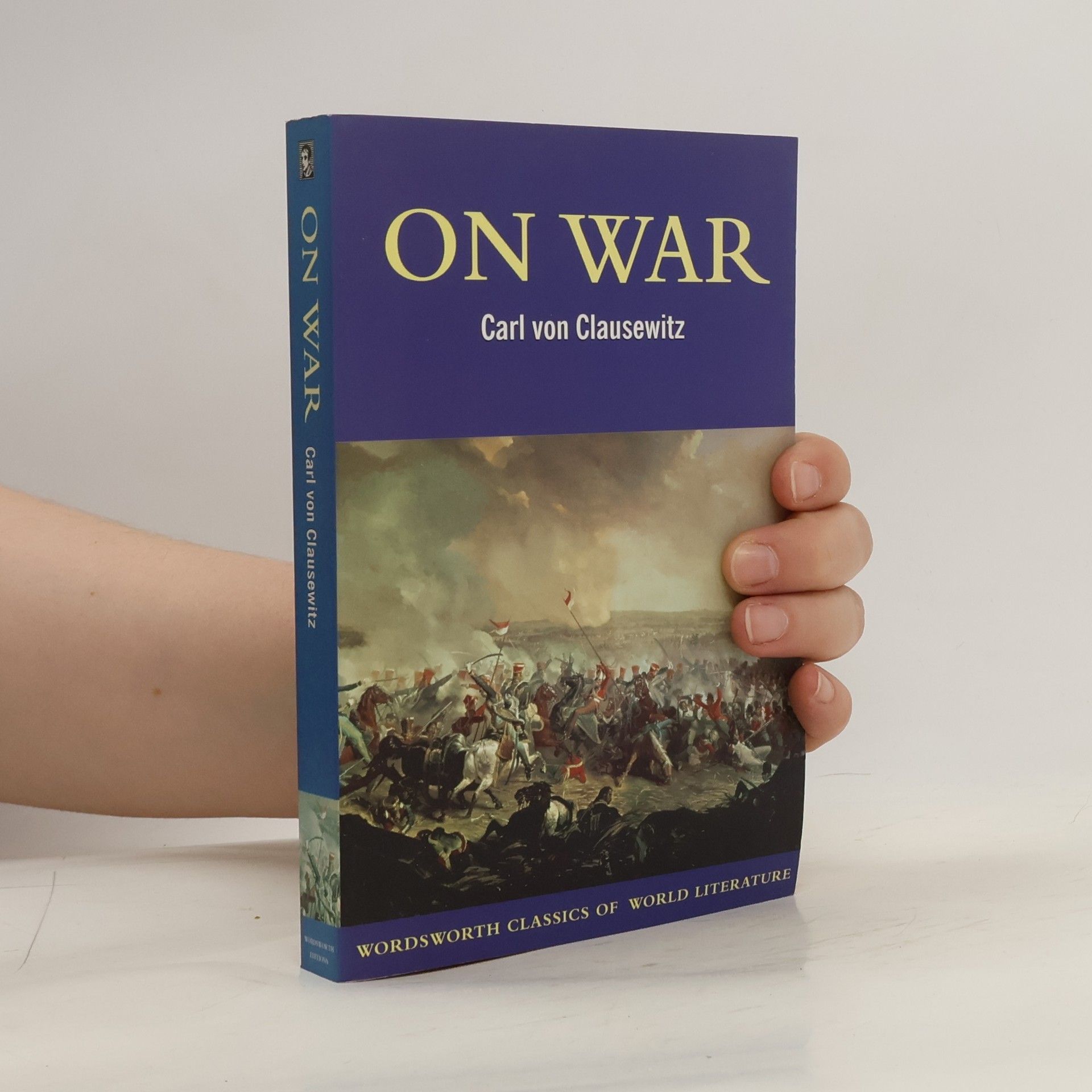Napoleon's 1796 Italian Campaign
- 352 páginas
- 13 horas de lectura
First translation into English of Clausewitz's most important campaign history, which offers key insights into his theoretical classic On War.
Carl von Clausewitz fue un soldado, historiador militar y teórico prusiano cuya obra fundamental moldeó la comprensión de la guerra. Sus escritos profundizan en la naturaleza del conflicto, enfatizando su conexión intrínseca con los objetivos políticos y su imprevisibilidad inherente. Clausewitz analizó meticulosamente la interacción entre la estrategia militar y los fines políticos, estableciendo conceptos fundamentales que siguen siendo influyentes. Sus profundas ideas continúan informando el pensamiento estratégico y el estudio del conflicto armado.







First translation into English of Clausewitz's most important campaign history, which offers key insights into his theoretical classic On War.
The book reveals a previously suppressed commentary by Carl von Clausewitz, a prominent military theorist, on the Battle of Waterloo. Historian Peter Hofschröer presents this fresh perspective, challenging the notion that all insights on the battle have already been uncovered. Through Clausewitz's analysis, readers gain a deeper understanding of the strategic complexities and implications of this pivotal historical event.
A sharply-observed study of one of the major turning points in history. A superb first-hand account from an officer on the Russian Imperial Staff. Includes a detailed examination of the Battle of Borodino.
In both a philosophical and a practical work, Clausewitz defines the essential nature of war, debates the qualities of a great commander, assesses the relative strengths of defensive and offensive war, and - in highly controversial passages - considers the relationship between war and politics.
"War is not merely a political act, but also a real political instrument, a continuation of political commerce, a carrying out of the same by other means." -Carl von Clausewitz, On War, 1832 On War is Carl von Clausewitz' masterpiece on war and military strategy, which was written between 1816 and 1830 and was published posthumously by his wife Marie von Clausewitz (née von Brühl) in 1832. Three main concepts of war stand out: war should be seen as an instrument of politics; the military objectives in war that support one's political objectives fall into two types: "war to achieve limited aims" and war to "disarm" the enemy; and the course of war will tend to favor the party with the stronger emotional and political motivations, but especially the defender. This edition is the classical translation of On War (1873) by Col. J.J. Graham, with an introduction and notes by Colonel F.N. Maude, published in three volumes. A must-read for military historians and theorists, policy makers, and anyone interested in understanding the philosophy and concepts of war.
Covers the period of Napoleon's invasion of Egypt and focuses on the Second Coalition's campaign in Italy and their victories under Suvorov's dynamic leadership that carried the tide of battle up against the French frontier. This first English translation of volume 5 of Clausewitz's collected works conveys the character of Clausewitz's writing in all its registers.
Carl von Clausewitz - Lebensbild eines patriotischen Militärs und fortschrittlichen Militärtheoretikers
Carl von Clausewitz (1780- 1831) ist heute so aktuell wie damals: Die Parallelen zwischen der fundamentalen Umbruchsituation seiner Zeit und den rasanten Umwälzungen des 20. und 21. Jahrhunderts sind unübersehbar. Von besonderem Interesse aber ist das Clausewitzsche Denken für Führungskräfte von heute: Ihnen bietet es Orientierung in Zeiten hoher Ungewissheit - und Einsichten, die weit über vordergründige Managementrezepte hinausgehen.